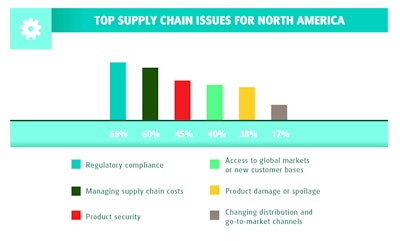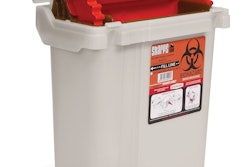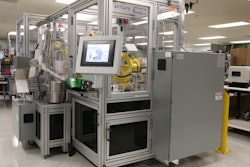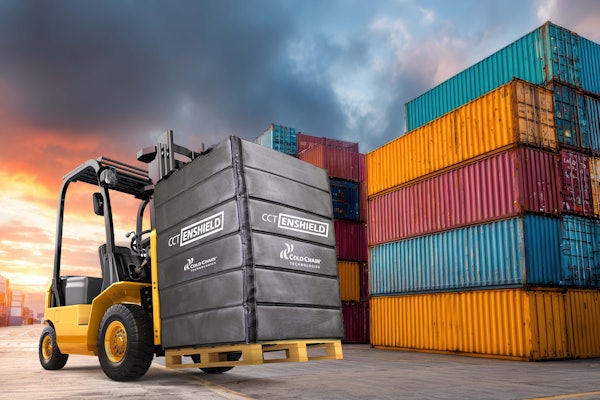
Changing regulatory environments, new customer demands around the globe, challenges around product security, and increasingly complex products are driving healthcare executives to make strategic supply chain investments, according to findings from the sixth-annual UPS "Pain in the (Supply) Chain" healthcare survey, conducted by TNS.
New technology investments and go-to-market models are top of mind as healthcare executives drive business and logistics transformations to meet evolving industry needs.
Over the next five years, 84% of global healthcare executives surveyed will invest in new technologies, 78% will enter new global markets and 70% will implement new distribution channels such as going direct to providers, retailers and even end-patients. In addition, 59% will increase reliance on third-party logistics partners. Together, these strategies indicate a move toward transformation in the healthcare supply chain.
Technology investments, in particular, signal growing concerns over product protection, which includes the security of high-value shipments and product spoilage, with large jumps in the number of executives planning to invest over the next three to five years in systems that support e-pedigree/ serialization, temperature-sensitive, and product security solutions.
For the first time since the survey's inception in 2008, product security surpassed cost management as the second supply chain concern with 53% of executives citing it as a top issue. Executives face challenges in product security with the top concern being increasing counterfeit sophistication at 48%, followed by poor supply chain visibility, cited as an issue by 40%.
Despite investment plans, concerns over the global economy and healthcare business landscape continue. Globally, 50% are still feeling the impacts of the economic downturn, and 60% in the U.S. are reporting continued impacts. Executives in Asia express the most optimism on the economy with only 31% reporting they are still feeling the effects.
From a future global business challenge standpoint, increasing regulations are the top concern, as reported by 48% of respondents. Concerns over healthcare reform and legislation closely follow at 46%, and 40% of executives worldwide are also worried about intellectual property protection. Executives in Asia are more worried than their peers about increasing competition at 51% and patent expirations at 41%
"Healthcare companies are balancing a number of priorities related to capturing business growth opportunities in new markets, protecting increasingly sophisticated and high-value products and navigating a complex regulatory environment worldwide," says Bill Hook, Vice President, Global Strategy, UPS Healthcare Logistics. “These trends have also been shaping UPS's solutions to ensure we remain the logistics provider of choice for the healthcare industry. As the industry shifts to meet new customer and market demands, executives are investing in transformative supply chain strategies and strategic partnerships that will help them achieve long-term business goals."
Regulations and cost top concerns for executives in North America
The supply chain concerns keeping North American executives up at night relate to regulations and cost management. Sixty percent cite cost management as a top supply chain concern, a higher percentage than their peers around the world. Regulatory compliance is also a top concern for 66% of logistics executives in North America, and is the top barrier to global expansion for North American healthcare executives.
Despite the high level of concern, executives there are successfully addressing issues in a variety of ways, ranging from performing supply chain optimization analyses to investing in logistics partnerships.
Top global supply chain pain points
The number one supply chain concern globally continues to be regulatory compliance, cited by 63% as a challenge. Navigating country regulations are also the top barrier to global expansion, indicated by 47% of those surveyed. As noted above, product security is the number two supply chain concern, followed by cost management, with 53% and 51% of executives respectively citing these as issues.
Noteworthy regional differences also surfaced:
• Asia: Product protection is a significant concern with 76% of executives surveyed naming product security as their number one supply chain concern. Product damage and spoilage is also a larger issue in Asia versus other areas of the world, with 67% calling this a top supply chain concern.
• Western Europe: The economic downturn continues to be top of mind, with nearly half in the region reporting continued impacts for their companies (significantly higher than in 2012). Despite economic challenges, healthcare executives are still planning supply chain investments in technology and new distribution models, underscoring the global focus on preparing for further transformation in the healthcare industry.
"Globally, we are seeing consistency in the top supply chain pain points year over year, and we anticipate continued elevation in concern levels over regulatory compliance and product protection as supply chains grow in complexity and length," says Robin Hooker, Director, Global Strategy, UPS Healthcare Logistics. "The good news is that executives are seeing success in addressing these issues through increasingly sophisticated technology solutions, accessing regulatory expertise, and forming strategic partnerships with third-party logistics providers. We've also seen these trends and insights in practice throughout our business model worldwide."






















